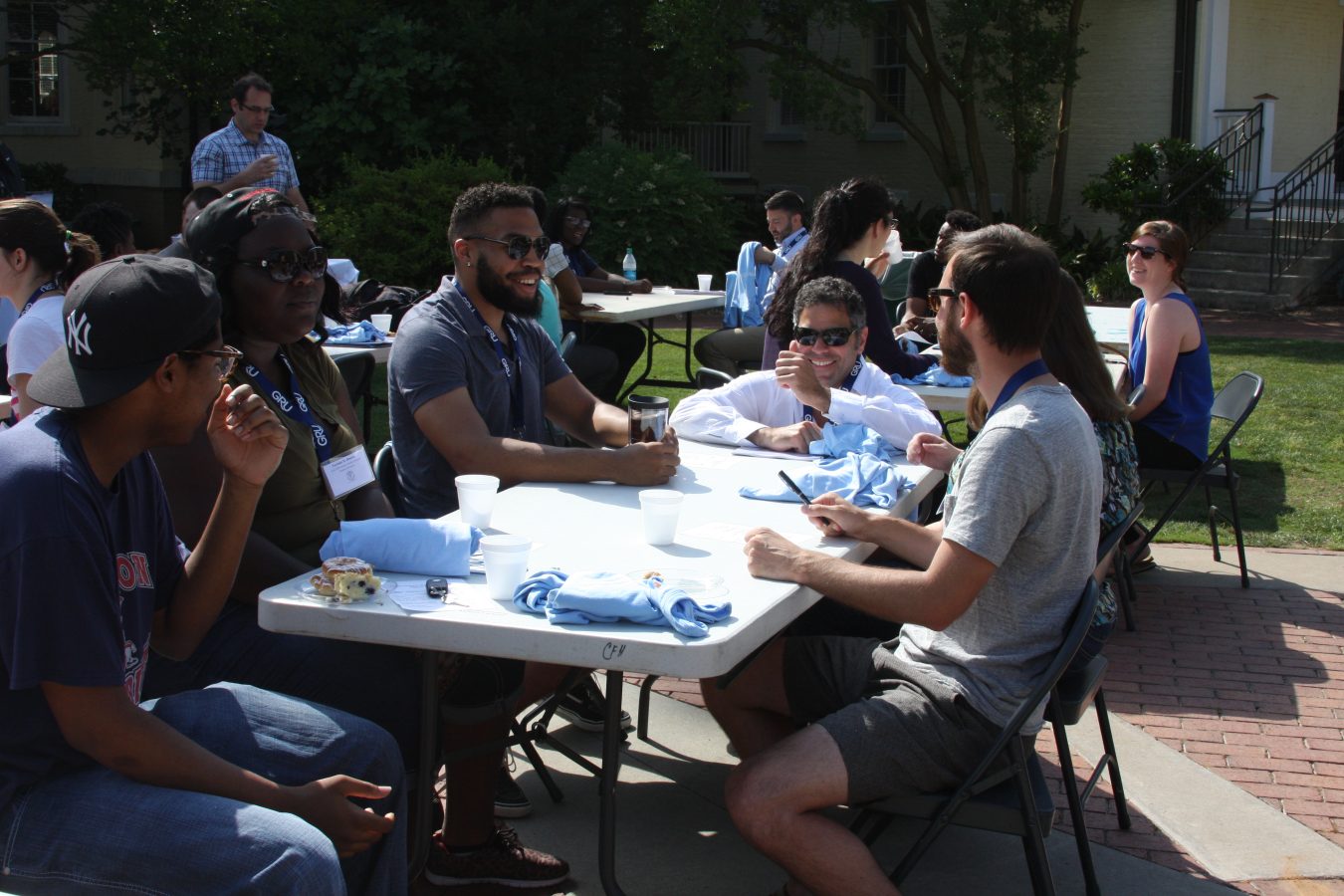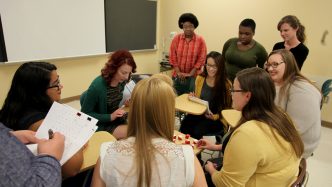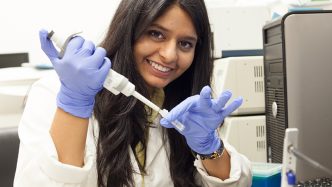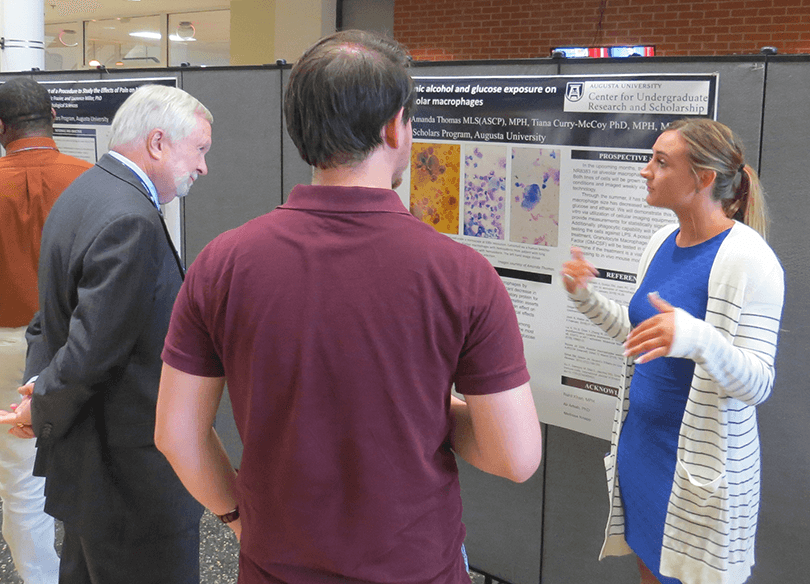The Center for Undergraduate Research and Scholarship’s (CURS) Summer Scholars Program kicked off Monday, May 18, and though other research universities offer undergraduate research opportunities in the summer, Program Coordinator Abigail Drescher said what GRU provides is special.
“One really great thing about the Summer Scholars Program that I try to highlight is the fact that it’s an interdisciplinary program,” Drescher said. “A lot of universities will have research programs that are strictly for the STEM departments, but the fact that this program is really geared at gathering projects from all departments is one of the really strong parts of it.”
The 13 research projects range from evaluating citizen perceptions of police in the post-Ferguson era to a study of the effects of repeated and subthreshold exposures to organophosphates on the brain’s structural integrity.
Faculty members submit proposals in the spring semester that go through a double blind review process. This year, evaluators received 32 applications, which were whittled down to the final 13. Then, faculty chose students to be a part of the projects.
“A lot of them will come to me and I will encourage them and help them find research opportunities during the academic year that might lead to a summer project,” Drescher said. “Otherwise, it happens more organically – maybe they’re in a class with a faculty member that they connect with. It just depends on the situation.”
Beyond the actual research, where students work 20 hours per week at the faculty member’s discretion, students also come together once a week for student development sessions. These sessions enhance their academics by exposing them to presentations about a wide range of topics, including research ethics and the difference between a CV and a resume.
Students receive a stipend for the work, as do 10-month faculty members participating in the program.
According to Drescher, getting students into the lab or into the library looking at primary sources can influence students in important ways.
“From these summer projects, a lot will either continue the research in the fall and spring, or maybe side projects will come out of them that the student can work on more independently,” she said. “And they can go on to publish that work or present that work, which obviously looks really great when they’re applying to graduate schools.”
Besides being a gateway to other research opportunities, it also gives highly motivated undergraduates the chance to remain academically engaged during the summer.
The program, which is sponsored by the Office of the Provost, Dr. Carol Rychly, VP for Academic and Faculty Affairs, and Dr. Michael Diamond, Senior VP for Research, ends June 26, with a poster presentation on Monday, June 29 at the JSAC Ballroom.
 Augusta University
Augusta University




